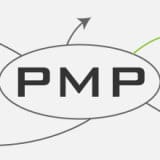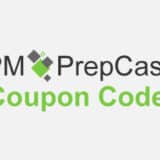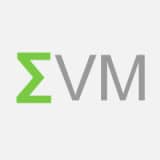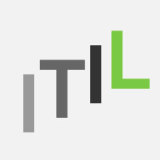PMP Lessons Learned: PMBOK Guide is the Go-to Exam Study Resource

Good news keep coming! We have another PMP aspirant who has just passed the PMP Exam before the change in 2020. Thanks and congratulations to Kuntal Shah who just passed the PMP Exam!
The lessons learned by Kuntal Shah on this PMP Exam prep project is detailed below:
Following are the key points for the study for PMP:
- Real exam PMP questions demand real thinking. They were indirect and short. The answers were indirect and long. It needed real, core thinking.
- Out of the 4 answers, you could eliminate two right away. But deciding between the other two answers took away most of the time.
- Given the time limit of 1 min to answer 1 question, your understanding of the processes has to be solid. One feels tremendous pressure, more due to time constraint, while answering the questions. The questions itself needed reading and re-reading at least 2-3 times in order to understand what was asked since they were abrupt, short, did not give much detail. Whereas the answers were long and needed reading and re-reading, since they were wordy.
- There were no direct questions such as what is next step after Create Scope (as an example) or something in similar lines that would quickly let you think of the next process.
- Almost every question had short, brief scenario and in the end it would ask, “What would the project manager do next? or How would the project manager proceed next?”.
- There were no negative questions.
- There was no other variety in questions. They were pretty standard as described above in point# 5.
- There were only 2 questions that needed EV calculations.
- Most of them were based on PMBOK® Guide. There was nothing that came from outside of PMBOK® Guide. Except that, at least a few of them were weirdly phrased. They barely made any sense given the time limit.
- From the study point of view, I would suggest to follow PMBOK® Guide mainly and some guidebook, such as I followed Andy Crowe’s book thoroughly. I would emphasize on understanding the core of the processes as to what happens in which process, elaborate on terms and terminologies used in the book (as the PMP answers were wordy and did not exactly used “a” word, it used elaborated details instead). I would suggest reading and re-reading alternatively between PMBOK® Guide and Andy Crowe’s book (I read), as each time you read afresh, you will find solid connections between the processes and process groups, and you will no longer have to memorize it. As your understanding increases, it will occur to you on its own. This is an extremely important milestone from the exam standpoint, and will help you answer questions that abrupt, indirect and short with answers that are even more indirect and wordy.
And to keep solving the mock tests in between these readings to trigger your thinking more on these lines. Just going through the same questions again and again will also help increase your understanding – I referred to Q & A’s (small book), the free exam provided at the end of the Andy Crowe’s book and in between questions at the end of each chapter, and free mock tests as referenced on your website.Overall, I would say going through all this, is an incredible experience! It challenges your physical and mental endurance. Therefore, attempt it with full preparation! Complete focus and concentration will definitely help.I wish all the best to everyone who is attempting and preparing for this exam.Thanks Edward for giving me this platform to say something out of my experience.~ Kuntal Shah, PMP
Thanks Kuntal Shah for the PMP Exam lessons learned!
Most Popular PMP Certification Exam Articles
- My Exam Prep Tips and Free Resources (I got 4P and 1 MP)
- How to Get 35 Contact Hours Fast and Easy?
- Detailed Comparision of online PMP Courses
- Over 1000+ FREE Quality Mock Exam / Practice Questions
- A FREE Guide to Formulas and Calculation (with explanation and sample questions)
- 47 Commonly Confused Terms with detailed explanation




 Hi, my name is Edward Chung, PMP, PMI-ACP®, ITIL® Foundation. Like most of us, I am a working professional pursuing career advancements through Certifications. As I am having a full-time job and a family with 3 kids, I need to pursue professional certifications in the most effective way (i.e. with the least amount of time). I share my exam tips here in the hope of helping fellow Certification aspirants!
Hi, my name is Edward Chung, PMP, PMI-ACP®, ITIL® Foundation. Like most of us, I am a working professional pursuing career advancements through Certifications. As I am having a full-time job and a family with 3 kids, I need to pursue professional certifications in the most effective way (i.e. with the least amount of time). I share my exam tips here in the hope of helping fellow Certification aspirants!





